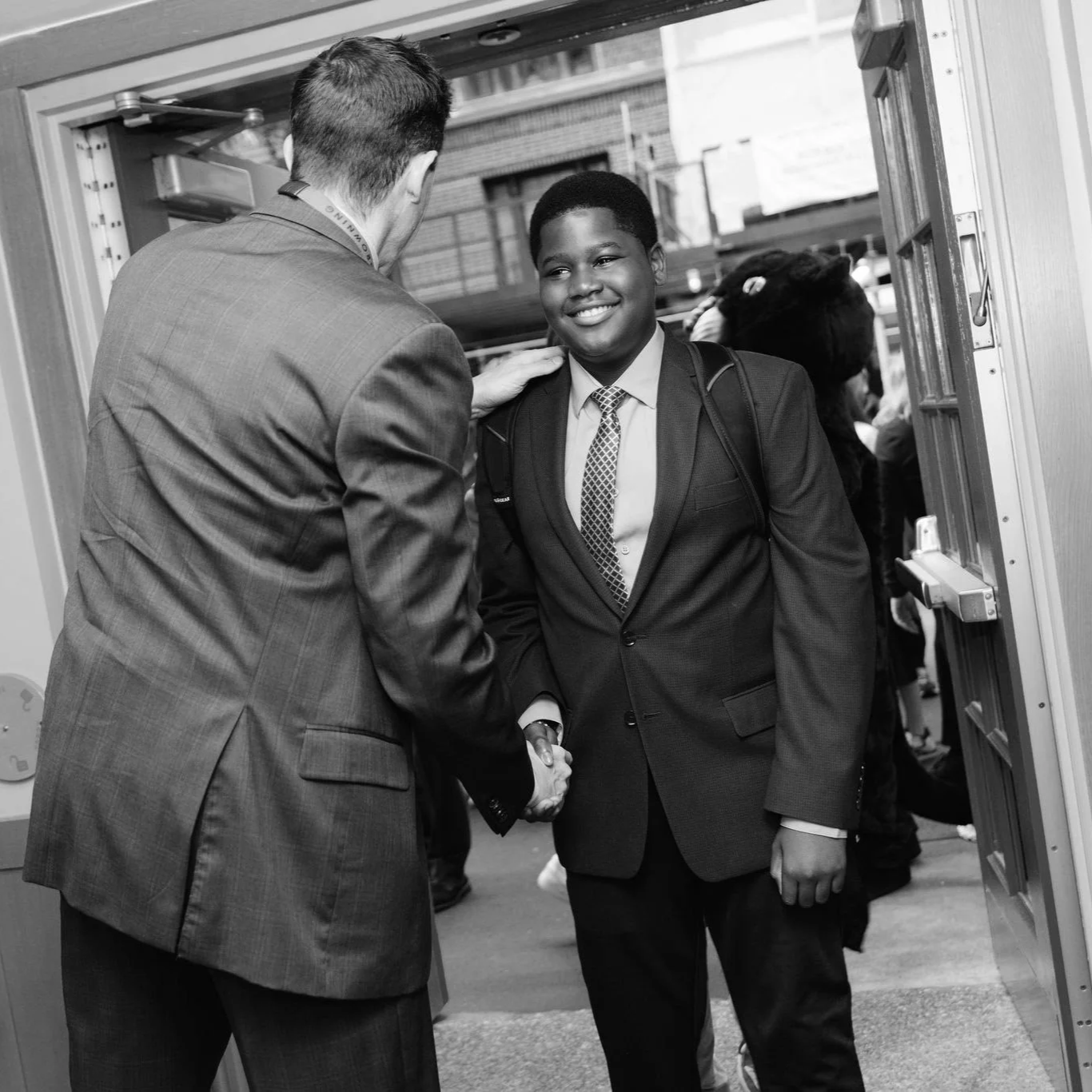Belonging at Browning
About 50 years ago, the headmaster of Roxbury Latin School, the Reverend Tony Jarvis, declared his school would be a place where every boy was “known and loved.” This sturdy ideal has become an imperative for many boys’ schools, Browning very much included.
But what does it mean for a boy to be “known” in his school?
At a basic level, it means that he will be called by his name—a lot, by a lot of adults. Every boy is named by his teachers, his advisor, and his coaches, but more pervasive intimacy and knowingness emerges when folks who are not directly responsible for a student remind him that he’s not a stranger here. As our Head of Lower School Eric Ogden notes, a Browning boy is likely to get at least two handshakes and as many as a half-dozen first-name greetings from adults before he reaches his homeroom each morning. A boy hearing his name from an admissions officer or a front office leader or teacher who’s never had him for class does not guarantee that he will feel known, but it’s not hard to imagine how it helps.
If that connection starts with a name, it is extended through what the psychologist (and Browning learning partner) Michael Thompson calls “claiming the child.” As adept as our teachers and coaches are in their subject areas, their most distinctive work comes in the context of relationships, in demonstrating to the boy that he is far more than a name on a roster or the aggregation of his GPA and his standardized test scores. Every boy deserves to be understood as a unique ensemble of interests, hopes, worries, and possibilities. He is known on these terms when his advisor references the new film from his advisee’s favorite director, when his music teacher asks about any inroads made on a boy's longstanding campaign to get a family dog, or when his soccer coach shares a quick story about how the coach made it through 11th Grade—because Coach senses their player is stressed about the competing demands on his time. A boy is known on these terms when the story of the boy has become vital, because the adults cannot see and understand their own experience of Browning without seeing and understanding the boy’s experience of Browning.
“A Browning boy is likely to get at least two handshakes and as many as a half-dozen first-name greetings from adults before he reaches his homeroom each morning. ”
While the virtue of a student being known is not exclusive to boys’ schools, this doesn’t lessen its importance at Browning. Kids are coming of age amidst media and social environments that frame “attention” not as a gift of interpersonal connection, but as a commodity to be leveraged for economic gain. Our boys are often hemmed in by a political discourse that increasingly skips past thoughtful examinations of manhood and instead essentializes them (“All boys are X”) in ways that serve reductionist narratives of numerous ideological stripes. In a world that embraces the false intimacy of social media and its posturing and performative rhetoric, there have never been more ways for boys to feel misunderstood or manipulated. However, there has also never been a more important time for boys to be part of a community committed to knowing them for who they are now, and committed to offering the care, guidance, and opportunities necessary for boys to choose purposefully who they wish to become.

